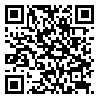BibTeX | RIS | EndNote | Medlars | ProCite | Reference Manager | RefWorks
Send citation to:
URL: http://sjsph.tums.ac.ir/article-1-112-en.html
Background and Aim: Factors determining the health care-seeking behaviors of an individual are social, cultural, and economic (treatment costs). Utilization of a health care system by a person will, on the whole, depend mainly on the socio-economic and demographic factors, cultural beliefs and practices, gender discrimination and women's status, the economic and political systems, environment, patterns of illness, and the health care system itself. The main objective of the present study was to examine current patterns of health care-seeking behavior in residents of Tehran, Iran in 2007.
Methods and Materials: In a cross-sectional study a two-stage cluster sampling method was used to select neighborhoods at the first stage and households at the second. The sample included a total of 1882 individuals over 18 years old in the households. The data were collected using a questionnaire. For analysis of the data the exact fisher test, X2, and multivariate logistic regression were used the software used was SPAA.3
Results: About 22/9% (431 persons) of the participants reported 1-2 illnesses during the previous month. Multivariate logistic regression indicated that age, sex, perceived severity of the illness, educational level, and marital status were all statistically associated with an attempt to seeking care, whether self-treatment or consulting a health center. The effects of different variables on decisions related to seeking care from a health care center versus self-care were also examined. The data showed that age, sex, perceived severity of the illness, income, educational level, household size, and method of payment were statistically the most significant variables affecting seeking care from a health center.
Conclusion: Based on these findings, it may be concluded that increasing social awareness about side effects of medicines, potential dangers of self-treatment, continuous education and training of physicians and pharmacists, improving health insurance systems and universal insurance coverage will be appropriate strategies for better utilization of health care services by the people.
Received: 2009/01/4 | Accepted: 2009/07/21 | Published: 2013/09/30
| Rights and permissions | |
 |
This work is licensed under a Creative Commons Attribution-NonCommercial 4.0 International License. |





